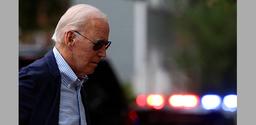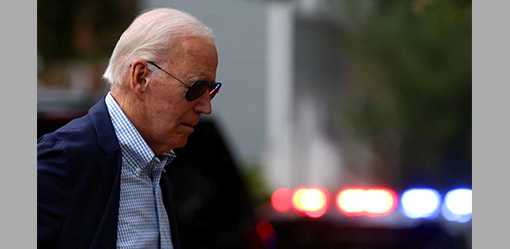

WASHINGTON (Reuters) - Days before a visit by President Joe Biden to Vietnam in which he aims to upgrade diplomatic ties, a U.S. government commission accused the country of backsliding on commitments to ensure religious freedoms.
In a report on Tuesday, the U.S. Commission on International Religious Freedom (USCIRF) said that since Washington dropped Vietnam from a list of "countries of particular concern" (CPC) over religious freedom in 2006, the Hanoi government had created "more space in some areas" for expressions of belief.
However, a "recent crackdown on civil society, increased pressure on independent religious communities, alarming reports of forced renunciations of faith, and other growing religious freedom violations add up to a clear reversal in that once-positive trajectory," it said.
The report said a May visit to Vietnam by USCIRF Vice Chair Frederick Davie and Commissioner Eric Ueland found that while religious groups experienced relatively greater freedom in urban areas, "serious challenges are pervasive in many rural areas."
Vietnam's requirement for religious groups to register contrasted with Hanoi's obligation to provide religious freedom to all its people, it said.
"Government authorities continue to closely monitor all religious activity, often harassing, detaining, or otherwise preventing unregistered faith communities from exercising their fundamental right to religious freedom," the report said.
Vietnam was on a "similar trajectory to China in terms of its regulation and control of religion," the report said.
Washington sees Vietnam as an important partner in the face of China's growing power in the Indo-Pacific region. It is looking to elevate its diplomatic relations with Hanoi to the top level when Biden is in Hanoi on Sept. 10, but analysts say human rights concerns could be an obstacle to certain cooperation.
Vietnam's constitution allows for freedom of religion and government media have rejected criticisms from groups such as USCIRF.
In its 2023 annual report, the USCIRF recommended the redesignation of Vietnam as a CPC, accusing it of "systematic, ongoing, and egregious violations of religious freedom."
Last year, the U.S. State Department added Vietnam to its Special Watch List for violations of religious freedom under the 1998 U.S. Religious Freedom Act, a lesser designation than that of a CPC, but its first since 2006.
The act provides for a range of policy responses, including sanctions or waivers, but they are not automatic.
(Reporting by David Brunnstrom; Editing by Leslie Adler)




